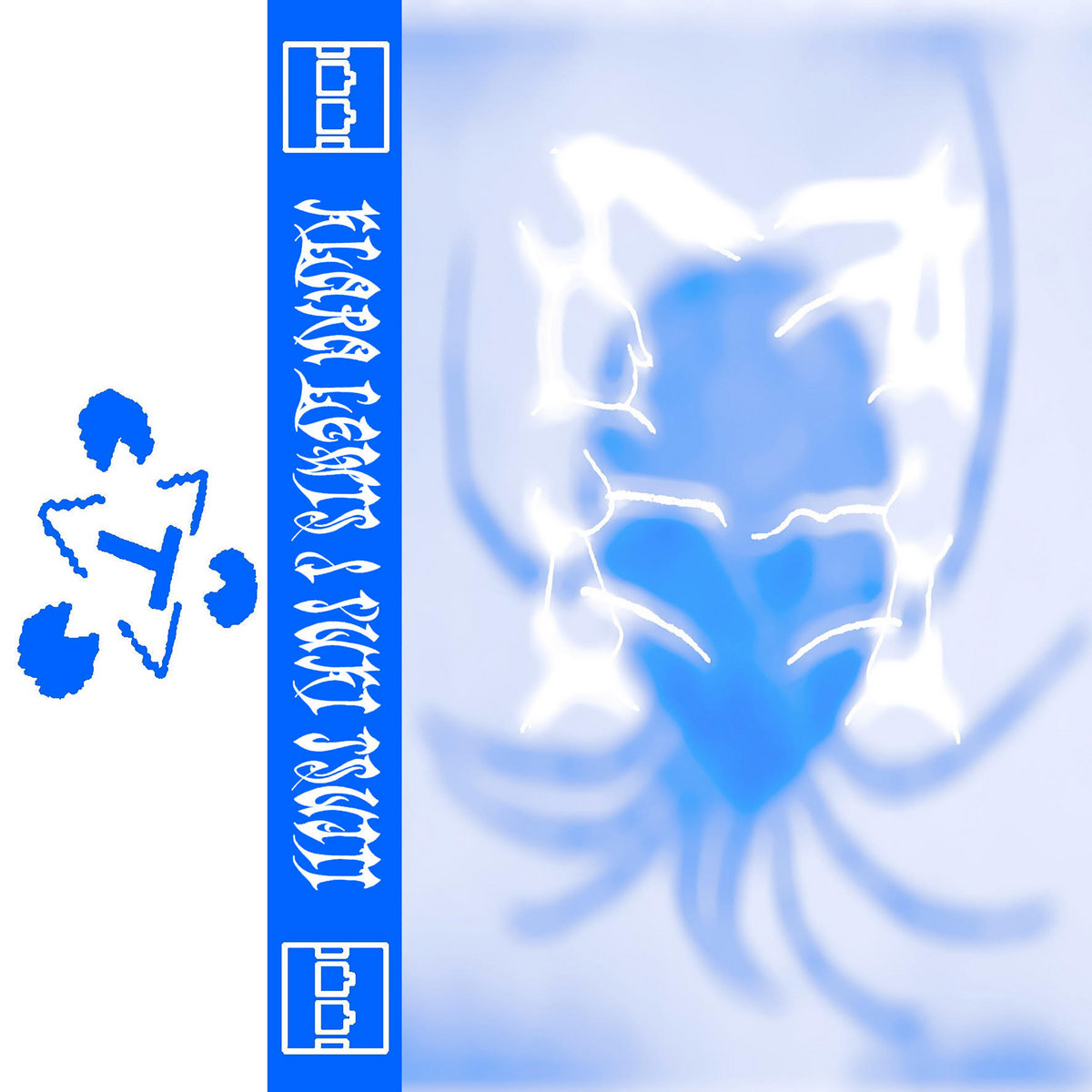 I am always eager to hear anything new from the reliably weird and inventive Klara Lewis, but the unpredictability of her collaborative releases is especially pronounced. Notably, Salt Water is the first of those collaborations in which I was not previously familiar with her creative foil. It also seems like quite a leftfield pairing on paper, given that Yuki Tsujii is best known as the guitarist for a hard-to-categorize Japanese rock band based in London (Bo Ningen). Fortunately, everything made sense once I learned that Tsujii is now based in Stockholm (Lewis is Swedish) and that he had previously collaborated with both Faust and Keiji Haino (his primal, convulsive playing here would be right at home on an album by the latter). Also of note: Lewis is described as a "loop finder" in the album's description, which feels like an extremely apt description of her role on Salt Water. Unsurprisingly, the loops that she found are extremely cool, resulting in an album that often sounds like scrabbling guitar noise assaulting an eclectic array of '60s exotica, classical, and film score samples.
I am always eager to hear anything new from the reliably weird and inventive Klara Lewis, but the unpredictability of her collaborative releases is especially pronounced. Notably, Salt Water is the first of those collaborations in which I was not previously familiar with her creative foil. It also seems like quite a leftfield pairing on paper, given that Yuki Tsujii is best known as the guitarist for a hard-to-categorize Japanese rock band based in London (Bo Ningen). Fortunately, everything made sense once I learned that Tsujii is now based in Stockholm (Lewis is Swedish) and that he had previously collaborated with both Faust and Keiji Haino (his primal, convulsive playing here would be right at home on an album by the latter). Also of note: Lewis is described as a "loop finder" in the album's description, which feels like an extremely apt description of her role on Salt Water. Unsurprisingly, the loops that she found are extremely cool, resulting in an album that often sounds like scrabbling guitar noise assaulting an eclectic array of '60s exotica, classical, and film score samples.
The album opens in simultaneously promising and frustrating fashion, as Tsujii unleashes a fitful, stuttering, and scrabbling spew of notes over a gorgeously shimmering and pulsing loop. Initially, that feels like quite a winning combination, but it soon starts to overstay its welcome a bit and often feels too improvisatory to justify its nearly 9-minute running time (it's more than twice as long as any other piece on the album). That said, it still ultimately winds up at an interesting destination, as the sounds gradually become more gnarled, grainy, and distorted in a way that calls to mind early laptop pioneers like Fenn O'Berg. The following "Close Up" also initially sounds like it could have been plucked from a laptop album circa 2000, as its haunting and sensuous vocal loop is strafed by sputtering static and possibly a chorus of frogs. Notably, however, Lewis and Tsujii quickly transcend that "early laptop" aesthetic to evoke something akin to a haunted sex lagoon, which is quite a neat trick. Moreover, the pair do not unnecessarily linger around and move onto the next piece after about three minutes, which feels like just the right length for a piece with the stylistic constraint of having a single repeating loop as its backbone.
It is probably fair to say that the rest of the pieces on Salt Water live or die based on the quality of Lewis's central loops, albeit with some consideration regarding whether an individual piece errs on the side of being too short to be fully satisfying (several pieces are only a minute long). That said, I do genuinely enjoy Tsujii's unconventional playing, as he gamely spews scrabbling entropy all over Lewis's loopscapes in interesting ways. Analogy-wise, I feel comfortable in stating that Lewis's loops are the cake and Tsujii's guitar playing is the frosting: the guitars are rarely the most compelling aspect of these pieces, but they are certainly a very welcome enhancement. There are exceptions, however, as Tsujii's playing does become a bit more central on the album's second half (especially on the tropical-sounding "Welcome Back"). Also, the line between Lewis's loops and Tsujii's guitars can get rather blurry on pieces like "Dear," where a descending classical guitar motif battles intrusions from retrofuturist computer bloops and various scrapes and harmonics from Tsujii's electric guitar.
To my ears, the strongest piece on the album is "Bed of Sand," which is built from a lovely classical guitar loop that unexpectedly slows and pitch-shifts into a somber and elegiac coda beset with surreal insectoid clicking. Elsewhere, "Pool" makes unsettling magic from an elusively shimmering and fluttering loop propelled by a lurching, groaning bass pattern. "One Two Three Embassy" is yet another highlight, combining a tense, obsessively looping string motif with spacy electronic sounds and a heaving, wobbly bass pattern. Just about every piece on Salt Water has some kind of inspired motif at its core, however, so the only real caveat is that a lot of these pieces feel like vamps, sketches, or snippets of larger improvisations rather than fully formed compositions. That is perfectly fine by me, as they cumulatively add up to an absorbing and unique album packed with great ideas (and a lot of great loops too). Obviously, the same can be said of Lewis's other collaborations as well, but this album stands out because Tsujii's aesthetic is more divergent from her sensibility than that of previous conspirators, resulting in quite an effective balance between sublime repetition and unpredictable and spasmodic spontaneity.

